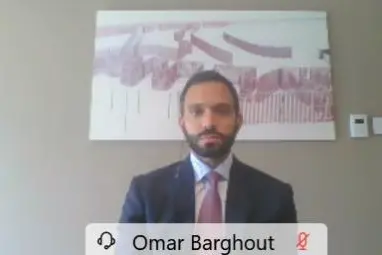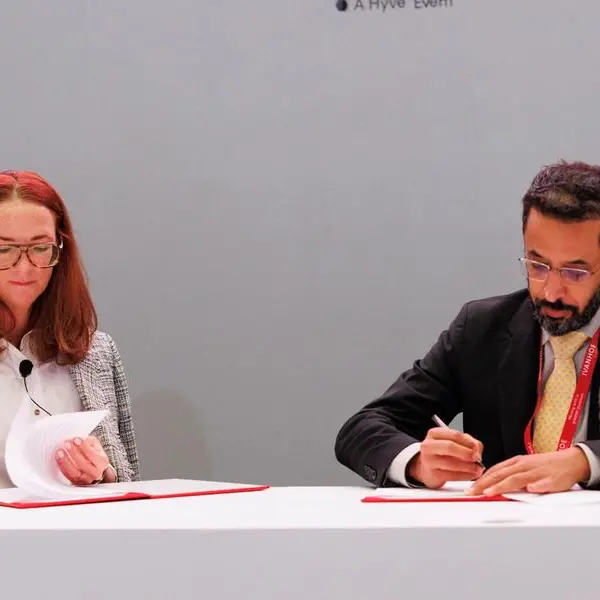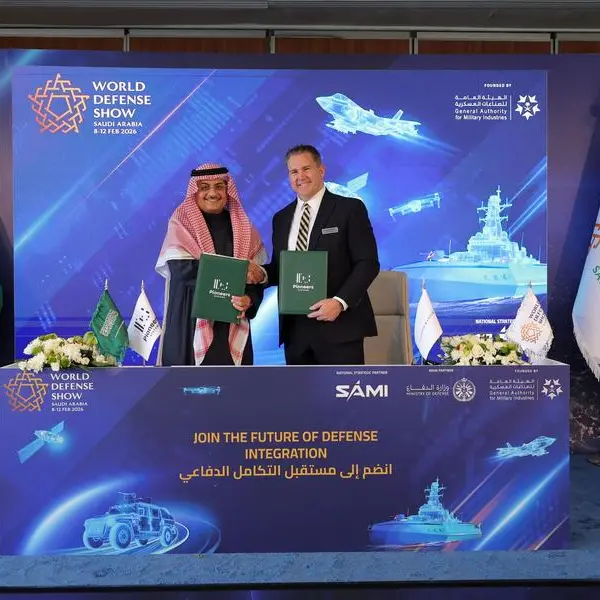PHOTO
- Withering the COVID19 impact, the UAE is set to recover as it prepares to celebrate its 50th anniversary in 2021
Julius Baer has released its Global Wealth and Lifestyle Report 2021 (GWLR), which takes a basket of consumer goods and services that reflect the HNWI lifestyle and analyses their prices in 25 key cities around the world. This is the Index’s second edition reporting on global trends, following its original version focused on Asia and introduced in 2011. The report also captures developments in the ‘conscious consumption movement’, which is truly taking off as COVID-19 has raised consumer commitment to, and awareness of, buying ethically and sustainably.
Hong Kong/Zurich, 11 April 2021 – In a wide-ranging index, Julius Baer tracks prices and consumer behaviour around the world to gauge the price inflation of a basket of goods and services representative of the HNWI lifestyle in cities around the world. With this, investors can estimate the portfolio returns needed to preserve, or even grow, their purchasing power.
A focal point in the latest edition is the impact of COVID-19 on high-end consumption: did the pandemic fundamentally rewire the global consumer’s mindset, or did it accelerate trends that were already set in motion? The findings of the Julius Baer Lifestyle Index 2021 show the continuation of many of the underlying trends of recent years, with COVID-19 impacting prices sharply in specific travel-related areas such as flights and hotel suites.
Nicolas de Skowronski, Head Wealth Management Solutions and Member of the Executive Boards of Julius Baer said: “As in previous years, the data of Julius Baer’s Lifestyle Index 2021 points to two clear conclusions for those looking to preserve their wealth. The first is to invest; inflation and other factors such as exchange rates and local regulations can play a huge role in the purchasing power of your wealth. Knowing your local or even personal inflation rates and secondly adopting the right wealth management and planning strategies are essential to preventing a real-term erosion of wealth over time.”
A notable emerging global trend mentioned in the previous edition of the Global Wealth and Lifestyle Report was the rise of conscious consumption. This year, the movement has gone mainstream, becoming a central theme in nearly every sector.
Key findings include:
- COVID-19 has raised consumer commitment to, and awareness of, buying ethically and sustainably. There is considerable evidence that consumption patterns and preferences are changing faster than ever before. The world’s consumers are definitely becoming more conscious, and the trend is truly taking off.
- Even when it comes to high-end goods and the premium services sector, consumers in the most expensive cities of the different continents are moving towards more conscious choices, which may result in fairer prices for the producers.
The trend is also reflected in HNWI behaviour when it comes to managing their wealth, according to Nicolas de Skowronski: “More and more, we are seeing our clients trying to make their assets work for future generations – their own descendants, but potentially also for the world at large, be it through foresighted planning, impact investing, sustainable solutions, or philanthropy. It is our role as a wealth manager to support this positive shift by helping them to make educated choices and better understand the broader implications of their investments.”
Key findings of the Julius Baer Lifestyle Index 2021
Our Lifestyle Index is changing to reflect the evolving world of high-end consumption. This year's changes to the basket of goods and services have largely benefited those living in Asia-Pacific countries, where the new items tend to be cheaper.
Despite this, Asia remains the most expensive region partly because of the region’s swift recovery from the global health crisis, currency stability, and price resilience for the index items. Shanghai is now the most expensive city in the index, clinching the top spot from Hong Kong. Tokyo and Hong Kong are the second and third most expensive cities respectively – yet the picture remains mixed with Mumbai still one of the places where wealth goes furthest.
The Americas are the most affordable region to live a luxury lifestyle this year. This is mostly due to the price of the US and Canadian dollars falling against other major global currencies, and a sharp devaluation of currencies in Latin America. Mexico City and Vancouver are amongst the most affordable cities in the index. Just one city – New York – remains in the top 10. This region is the most expensive place for healthcare but personal technology remains affordable, as the US is home to many of the world’s tech titans.
Johannesburg has emerged as the most well-priced place for luxury in the 2021 index. This is the only African city represented in the index, and was one of few cities to experience significant price falls over the past year as the South African rand depreciated significantly. All of the other cities in EMEA have risen up the rankings, buoyed by the strength of the euro and the Swiss franc, except London, due to Brexit uncertainty.
The collapse of global tourism in 2020 has had a significant impact on this year’s index. In Asia, Bangkok and Singapore have both slipped down the rankings, while the dearth of travellers has also hit many European cities.
The luxury categories that have seen the biggest falls in prices in USD terms are ladies’ shoes
(-11.7%) and hotel suites (-9.3%). The biggest gains are in business class flights (+11.4%).
Dubai: a luxury city set for rebound
A commercial powerhouse, a sought-after tourist destination, and a business hub, Dubai cements its position as an international luxury and business hub, inching up the Index ranking this year to take up the 12th spot. Over the past 20 years, Dubai has become known for its host of smart shops, grand, modernist apartment blocks, and vibrant leisure and nightlife scenes. A substantial influx of HNWIs has bolstered the luxury goods market, which continues to be buoyant, with a value of just over USD 1 billion in 2020.
With ambitious plans for economic diversification coupled with zero corporation tax and VAT at just 5%, recent regulations and others underway pertaining to foreign ownership rules for onshore companies in certain sectors, as well as 10-year visas for investors, professionals, and retirees visas, are set to further contribute to Dubai’s appeal as a global hub. Despite the impact of the pandemic, there is little doubt that the country will bounce back as it prepares to celebrate its 50th anniversary owing to its growing emphasis on research and development, technological advancements, and innovation.
Omar Barghout, Head of Investment Advisory, Middle East at Julius Baer said: “Dubai has been a pioneer in the efforts to combat Covid-19. With the aid of a fiscal stimulus, it has managed to bolster finances amid the weak economic backdrop and low oil prices. The reopening of commercial activities has attracted tourists and investors back to Dubai, raising hopes that the much-anticipated Expo 2020 (rescheduled to 2021 due to the pandemic) will be a success. In addition, the Emirate is emerging as a vibrant hub for tech start-ups, drawing significant early-stage investments in the fintech space. “
For a copy of the Julius Baer Global Wealth and Lifestyle Report 2021, please visit:
https://www.juliusbaer.com/wealth-report/
For illustration material of the Julius Baer Global Wealth and Lifestyle Report 2021, please visit:
www.juliusbaer.com/en/media-investors/news/julius-baer-publishes-global-wealth-and-lifestyle-report-2021/
© Press Release 2021
Disclaimer: The contents of this press release was provided from an external third party provider. This website is not responsible for, and does not control, such external content. This content is provided on an “as is” and “as available” basis and has not been edited in any way. Neither this website nor our affiliates guarantee the accuracy of or endorse the views or opinions expressed in this press release.
The press release is provided for informational purposes only. The content does not provide tax, legal or investment advice or opinion regarding the suitability, value or profitability of any particular security, portfolio or investment strategy. Neither this website nor our affiliates shall be liable for any errors or inaccuracies in the content, or for any actions taken by you in reliance thereon. You expressly agree that your use of the information within this article is at your sole risk.
To the fullest extent permitted by applicable law, this website, its parent company, its subsidiaries, its affiliates and the respective shareholders, directors, officers, employees, agents, advertisers, content providers and licensors will not be liable (jointly or severally) to you for any direct, indirect, consequential, special, incidental, punitive or exemplary damages, including without limitation, lost profits, lost savings and lost revenues, whether in negligence, tort, contract or any other theory of liability, even if the parties have been advised of the possibility or could have foreseen any such damages.




















